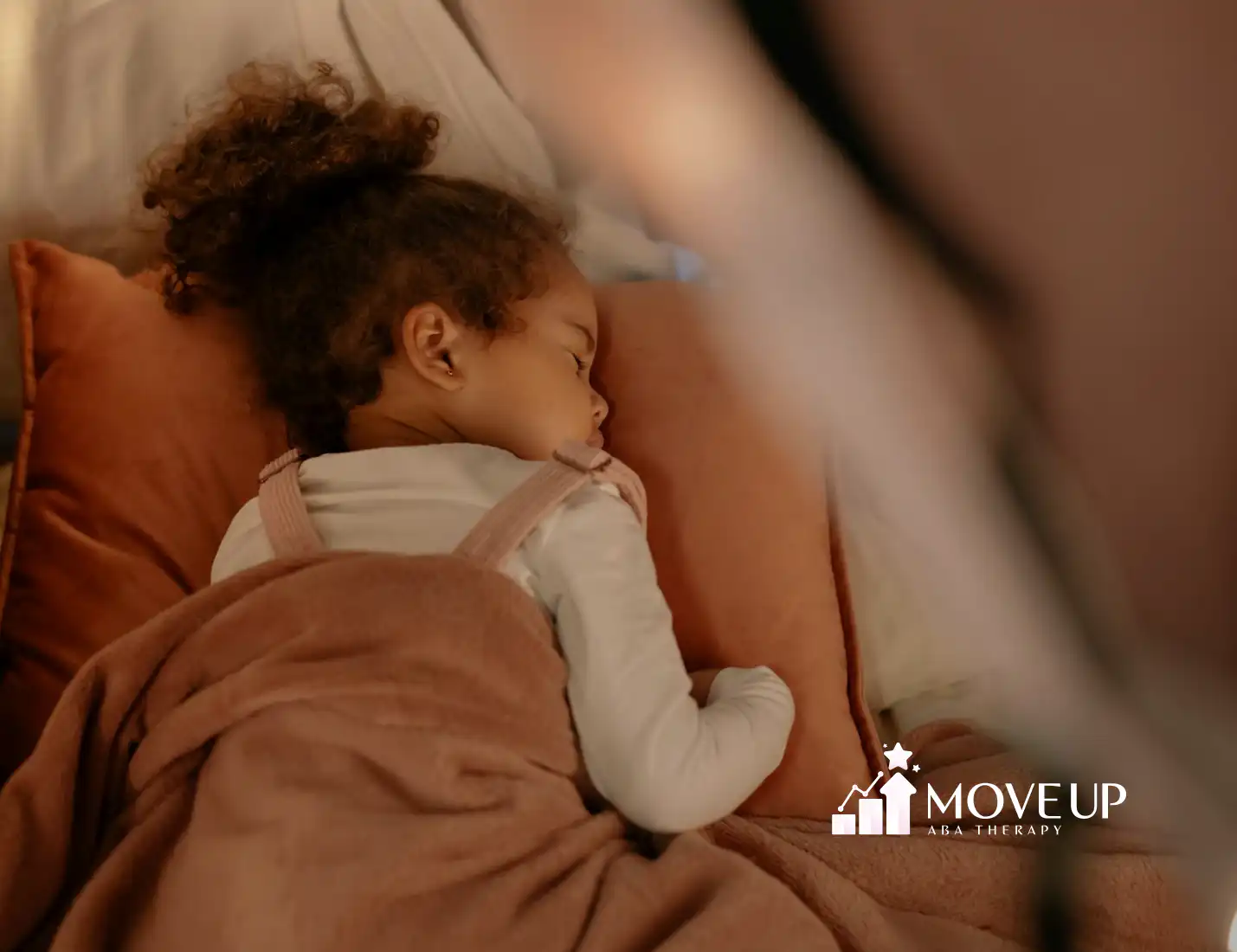Key Highlights
- Signs of autism in adult females often differ from traditional symptoms observed in males, making them harder to detect.
- Autism spectrum presentation tends to be more subtle in women, often involving internalized traits like social anxiety and sensory issues.
- Masking behaviors are common among autistic women, allowing them to camouflage their traits in social situations but often at a mental health cost.
- Diagnosis of autism in females is often delayed due to gender stereotypes and underrecognition of their autistic traits.
- Many autistic women experience co-occurring conditions like anxiety and depression, which can complicate the diagnostic process.
- Identifying sensory issues and repetitive behaviors, alongside difficulties in social interaction, can help in understanding autism in females.
Diagnosing autism in adult females can be hard. The signs and other autistic traits often look different in women than in men. Because of this, many women do not get a diagnosis or find out late. Some women with autism spectrum disorder try to hide their symptoms. Others may just think their problems in life come from something else.
This blog will talk about the main autistic traits in women. It will show how autism can appear in adult females and explain some reasons why many women have trouble getting a diagnosis for autism.
Understanding Autism in Adult Females
Autistic adult females have their ways of experiencing the autism spectrum. These experiences can be different from what is often seen in males. Many adult females keep their struggles inside. They do not always show clear social or behavioural problems. Instead, they might deal more with feelings like anxiety or sadness.
Research says that autistic adult females can be good at masking their symptoms when they are young. But as they grow up, parts of life like social interaction and planning things become hard for them. These differences show how autism is not the same for everyone. It can be tough to notice or diagnose autism in adult females because these signs are not out in the open. This is why the autism spectrum can look different in women than in men.
Why Autism Often Goes Unrecognized in Women
Autism in adult females can be difficult to identify. Signs may differ from those seen in males, as women often mask their social challenges by mimicking others or adopting specific speech patterns. This effort to fit in can delay diagnosis into adulthood or prevent it entirely.
Society often misinterprets autistic traits in girls, viewing shyness, anxiety, or focused interests as typical behaviors rather than signs of autism. Current diagnostic criteria primarily reflect male presentations, leading to overlooked differences in social interactions and sensory sensitivities among females. Consequently, many women struggle to receive appropriate support and assistance as they age.
The Impact of Gender Stereotypes on Diagnosis
Gender stereotypes influence perceptions of autism in females. Autistic women are expected to be friendly and socially adept, often masking their difficulties by mimicking social cues and facial expressions. This can lead to them being overlooked for support or misdiagnosed.
In contrast, autistic males typically display more overt behaviors, such as hyperactivity or frequent outbursts, making their traits easier to identify early on. This bias can result in delayed recognition of autism in women by healthcare providers.
Interests considered feminine, like dolls or celebrities, may obscure repetitive behaviors and intense focus characteristic of autism. Consequently, adult females face challenges in obtaining accurate diagnoses.
Core Characteristics of Autism in Adult Females
There are a few core things that show up in adult females with autism. These things can look a bit different from what you may see in men. Many women with autism often have their own set of autistic traits. For example, they may have trouble making close friends or might not pick up on certain social cues. A lot of the time, these challenges are kept inside. Instead of clear, outward signs, they might feel more anxiety or become depressed.
Some common signs of autism in adult females include strong reactions to sensory things around them, trouble getting started or keeping up with tasks, and doing the same actions again and again. These things might not show up the same way in every person. That is why it is key to have special ways to screen and find autism in women. That will help catch more cases and help these women sooner.
Social Communication Differences
Communication is often hard for autistic adults, especially autistic women. Social situations can be tough. This is because it is not easy for them to read facial expressions, body language, and the way people say things. Autistic women may not be able to figure out how someone else feels. This can make conversations or time with people go the wrong way.
Keeping eye contact is also hard for autistic women, even though people expect it. Many women do it anyway, but this only makes them feel more nervous inside.
When there is a group, autistic females can feel left out. They use a lot of energy just trying to fit in. These women may do better talking one-on-one, but they might stay away from bigger groups. This shows that there are special social communication issues that many autistic women face.
Restricted and Repetitive Behaviors
Repetitive behaviors are another way to spot autism. But it can be hard to notice them in females. You may see some autism traits, such as “stimming.” This is when someone does the same action again and again, like rocking or moving their hands. In adulthood, these actions often turn into quiet and small habits.
Adult females may do more refined repetitive behaviors. These can be things like twirling their hair, picking at their skin, or pacing back and forth. It is not easy to see these as autism signs. Many females get better at hiding or changing what they do. This makes it harder to know if they have autism.
Besides what is seen in the body, many autistic women also have a strong focus on what interests them. This can be about movie stars or something special that most people don’t care about. Some collect lots of facts or get very good at certain hobbies. Some of these deep interests look okay to the people around them. But they show the classic sign of doing the same things over and over again. This pattern has a long link to autism and tends to stay as they go through adulthood.
Masking and Camouflaging Behaviors
Women who have autism often try to hide their autistic traits when they are in social situations. This is called masking. They may copy how other people act, practice what to say, or stop themselves from doing things that show they have autism.
Masking can help women get by in the world. But it can also lead to a high emotional cost. Over time, all the effort to fit in can make someone feel worn out. It can also cause problems with mental health and make a person unsure of who they are. When we learn about masking, we see how autism can impact women differently. It also helps us understand more about their mental health conditions.
What Is Masking and Why Is It Common in Females?
Masking, or camouflaging, is a way that people on the autism spectrum may cope by acting in ways that help them fit in. Many autistic females do these things more often. They might practice what to say with others or copy the facial expressions of people around them. They can also learn to follow social cues to seem like those around them.
It is common for females to mask more than males. This is because there is pressure from society to fit in and seem good at talking to people. When autistic females cover up their autistic traits, they can seem like everyone else, but this can make things worse. It can lead to feeling worn out from being social and add to problems with feelings.
Masking also makes it harder to spot autism spectrum traits. Because these new ways to act cover things up, people often do not get an autism diagnosis until later in life. This is why people need to have more empathy and look closer when thinking about who may be autistic.
Emotional Toll of Masking Autism Traits
Prolonged masking is not good for mental health. It can lead to problems like anxiety, depression, or stress. Many autistic females hide who they are. They feel a struggle inside between their autistic traits and the push to act like everyone else.
When they try hard to fit in, it causes emotional burnout. It can be even worse when social difficulties show up, like when relationships feel fake or forced. This big gap between real actions and the way they pretend makes them feel alone. It can also cause them to question who they are.
Over time, masking can lead to even bigger mental health issues. If there is not enough help, these women find it hard to stay balanced. This is why it is so important to see masking not just as something people do to cope, but also as a sign that help is needed.
Sensory Sensitivities and Daily Life
For many autistic adult females, sensory sensitivities can have a big effect on daily life. Bright lights, loud sounds, and certain textures may feel too strong. This can make it hard for them to manage their routines or feel at home in their own spaces.
These sensory issues also show up when sleeping. Loud breathing or alarm clocks, even at low volume, can be too much for some adult women. By understanding how sensory sensitivities make life harder for autistic adult females, we can come up with better ways to help them cope and live well each day.
Common Sensory Challenges in Adult Women
Sensory issues often manifest differently in adult females compared to males, affecting various aspects of life. For instance, females might avoid crowded or brightly lit spaces due to overstimulation.
The text table below summarizes common sensory challenges:
| Sensory Trigger | Impact on Daily Life |
|---|---|
| Bright lights | Difficulty focusing, headaches, avoidance of environments |
| Loud noises | Anxiety, stress, need for quiet spaces |
| Uncomfortable clothing | Irritability, distraction from routines |
| Strong odors | Physical discomfort or nausea |
| Touch sensitivity | Challenges with physical closeness, aversion to certain fabrics |
Understanding these triggers helps support autistic women in reducing daily life stress.
Coping Strategies and Adaptations
Adopting coping strategies can really help autistic adult females handle daily challenges. Some ways to help include using sensory supports and having set routines.
- Try noise-cancelling headphones to help with sound sensitivity.
- Use relaxation techniques, like mindfulness, to deal with too much stimulation.
- Make daily schedules so it’s easier to handle changes.
- Look for early intervention, such as therapy or helpful devices, for more support.
These ideas are out there to help with sensory and social difficulties. By using them, autistic women and other adult females can improve their quality of life.
Co-Occurring Conditions and Misdiagnosis
Autism often happens along with other mental disorders, which can lead to misdiagnosis in adult females. Many people with autism spectrum disorder also have anxiety or depression. This makes it harder to get the right identification.
Women often keep their symptoms inside. Because of this, they are sometimes misdiagnosed with ADHD or eating disorders, without looking for autism. It is important to notice co-occurring conditions. This helps give the right care to women who deal with the autism spectrum and these other issues.
Anxiety, Depression, and Other Overlapping Conditions
Women with autism often deal with other mental health issues like anxiety and depression. Many times, these problems come from struggles with social interaction and from things in the world that are too loud or bright for them.
Autistic adult females can also have other conditions along with autism. These include things like obsessive-compulsive disorder (OCD), ADHD, or problems with sleep. With all of this going on, it can be harder to notice or spot autism traits.
Looking at both mental health and autistic traits together shows why it is so important to have a good and complete way to check and care for people.
Navigating the Path to a Proper Diagnosis
Getting an autism diagnosis when you are an adult can be hard. Many things get in the way. Some of the tests used may not work well for everyone because they are often made with males in mind.
Many adult females start looking for help when big changes happen in their lives. This is when autistic traits can get tough to deal with. Noticing things like trouble with social skills or being extra sensitive helps people see what is going on.
It is good to put money and effort into autism tests that look at the ways men and women might be different. This helps adult females on the autism spectrum get support fast and at the right time.
Final Thoughts
Recognizing the signs of autism in adult females is essential. Many women go undiagnosed for years, often masking their traits to fit social expectations. This can make it harder for them to get the understanding and support they need. By learning about the common signs—such as sensitivity to sounds or smells, social challenges, and co-occurring conditions—we can better support autistic women and create a more inclusive world.
If you or someone you love may be on the autism spectrum, don’t wait to seek guidance. Move Up ABA offers personalized support and professional insight to help you understand autism and build a strong path forward. Contact us today because every woman deserves to be seen, supported, and empowered.
Frequently Asked Questions
1. What are the subtle signs of autism in adult females?
Some subtle signs of autism in adult females can be hard to see. They might have trouble knowing social cues when talking to other people. Some also have strong, repetitive interests, or else they may be sensitive to loud noises, lights, or touch. Problems with focus or getting organized are also signs of autism. Many adult females have signs of anxiety as well. This can make it hard to spot autism in women because their signs are not always like those seen in men.
2. How does masking affect women with autism?
Masking is something many autistic women do. They copy how other people act so they can fit in better. This can help them get through social situations. But doing this all the time can hurt their mental health. People may feel more anxiety or depression. It can also make it take longer to know about or get a diagnosis of autism.
3. Why do so many women receive an autism diagnosis later in life?
Women often receive late autism diagnoses because they tend to mask their symptoms and exhibit more subtle, internal signs. Additionally, diagnostic tools are typically designed with men in mind. Gender differences in social interaction can obscure these traits in women, leading to underrecognition until adulthood.
Sources:
- https://pmc.ncbi.nlm.nih.gov/articles/PMC10060524/
- https://childmind.org/article/autistic-girls-overlooked-undiagnosed-autism/
- https://pmc.ncbi.nlm.nih.gov/articles/PMC10446214/
- https://educationonline.ku.edu/community/communication-difficulties-in-autism-spectrum-disorder
- https://www.autism.org.uk/advice-and-guidance/topics/behaviour/masking
- https://www.autismspeaks.org/sensory-issues




